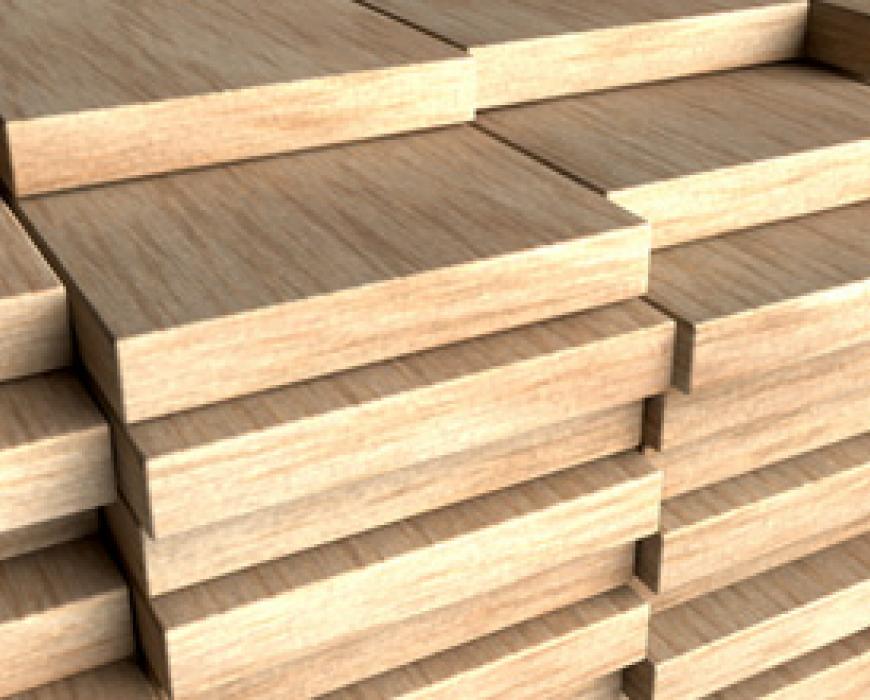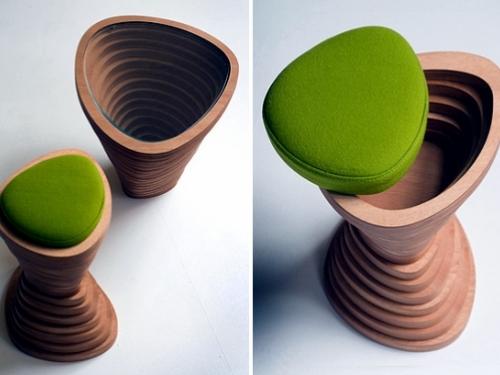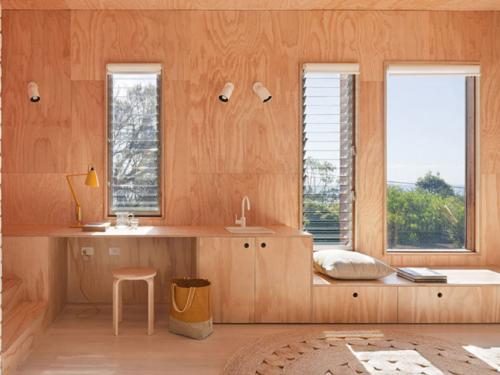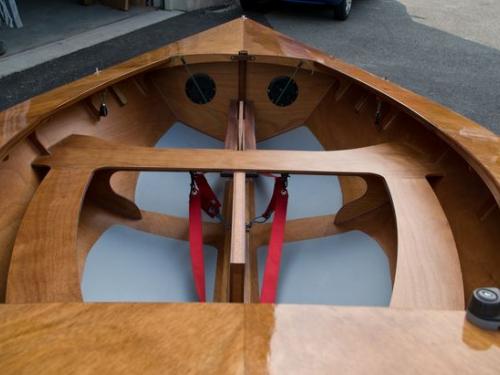
Okoumé
Okoumé is the wood of the Okoume tree (Aucoumea klaineana), a species native to west-central Africa, in particular Gabon, Equatorial Guinea and the Republic of Congo. The lumber of this tree is known by many names, among them Acoume, Gaboon wood, Uume and Zouga. Within its native range, Okoumé is considered widespread and relatively common. Okoumé is widely used for veneers and is often processed into Plywood.
Okoumé heartwood is typically a lustrous pinkish-brown to light red with a fine, uniform texture. The grain is straight to slightly wavy and may be slightly interlocking. sometimes lustrous. Silica content of about 0.12 to 0.16% is reported.
Saw teeth blunt rather quickly due to the silica content; machined surfaces are somewhat woolly but can be worked to a good finish; glues and nails well; easy to peel into veneer, bolts generally heated.
Outside of its native range, most Okoumé is sold as veneer or Plywood. Solid lumber is used in furniture and joinery. Okoumé comes mainly in the form of Veneer and Plywood, especially for use in decorative paneling, hollow-core doors and furniture. Okoumé is one of the tropical hardwoods used for exterior Plywood. It is traditionally used to make canoes in the tree’s natural range.











